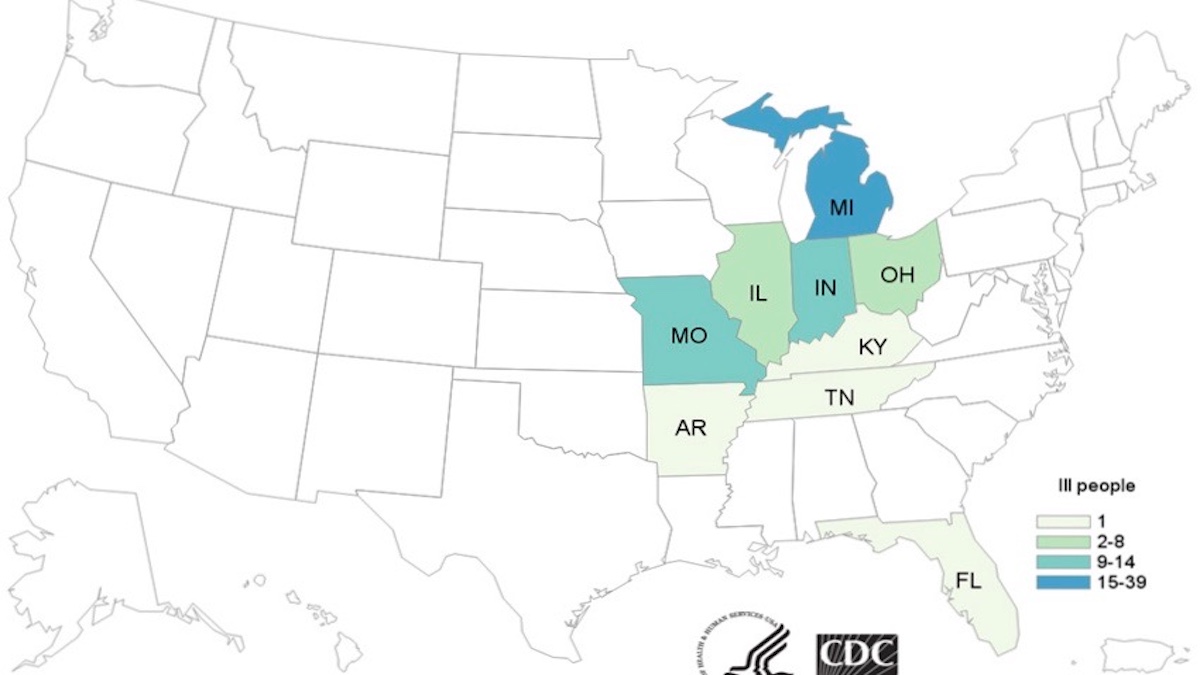The Salmonella Adelaide precut melon outbreak has ended, according to the CDC, with 77 people sick in nine states. Attorneys at the Pritzker Hageman law firm have filed lawsuits in this outbreak on behalf of ill clients. Thirty-six people have been hospitalized in this outbreak, which is a very high percentage.

The case count by state is: Arkansas (1), Florida (1), Illinois (7), Indiana (14), Kentucky (1), Michigan (39), Missouri (11), Ohio (2), and Tennessee (1). llness onset dates ranged from April 30, 2018, to July 2, 2018. The patient age range was from less than 1 year to 97. Fifty-one percent of patents who were interviewed were hospitalized in this Salmonella Adelaide precut melon outbreak. The typical hospitalization rate for a Salmonella outbreak is about 22%.
The FDA, CDC, and state officials have investigated these illnesses, and report that fruit salad mixes that included pre-cut melons were a likely source of this outbreak. The FDA told consumers not to eat recalled fresh cut watermelon, honeydew melon, cantaloupe, and fresh cut fruit medley products that contained any of these melons.
Caito Foods, LLC voluntarily recalled fruit salad mixes that contained these melons to prevent further distribution of potentially contaminated products after the CDC concluded that those products were the likely source of this Salmonella Adelaide precut melon outbreak. The recall was issued on June 9, 2018.

Contact attorney Fred Pritzker at 1-888-377-8900 for help.
Attorney Fred Pritzker, who is representing many clients sickened in this Salmonella Adelaide precut melon outbreak and other Salmonella outbreaks that have occurred this summer, said, “There have been several serious outbreaks linked to this fruit in the past. Producers and processors need to be very careful that this ready-to-eat food is safe for consumer to eat.”
The FDA said that the recalled melon products were packaged in clear, plastic clamshell containers under several brand names and labels. They were sold at Costco, Jay C, Kroger, Payless, Owen’s, Sprouts, Trader Joe’s, Walgreens, Walmart, and Whole Foods/Amazon stores in Alabama, Florida, Georgia, Illinois, Indiana, Iowa, Kansas, Kentucky, Maryland, Michigan, Minnesota, Missouri, Nebraska, North Carolina, North Dakota, Ohio, Pennsylvania, South Dakota, Tennessee, Virginia, West Virginia, and Wisconsin. The FDA issued a 44-page list of stores that may have sold the recalled melon.




